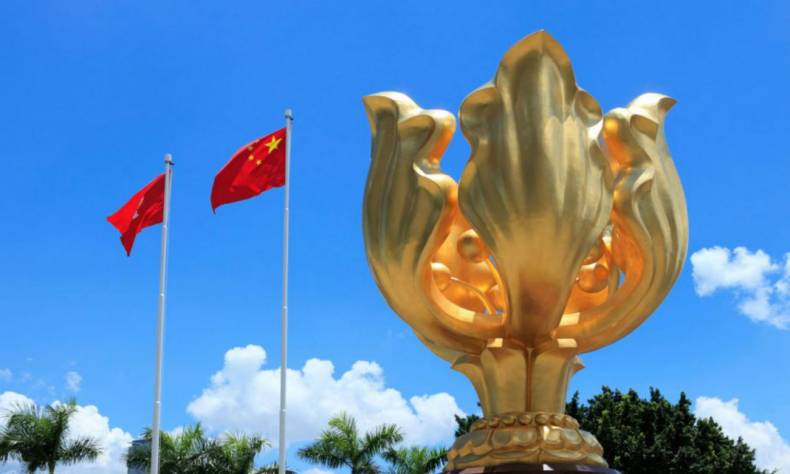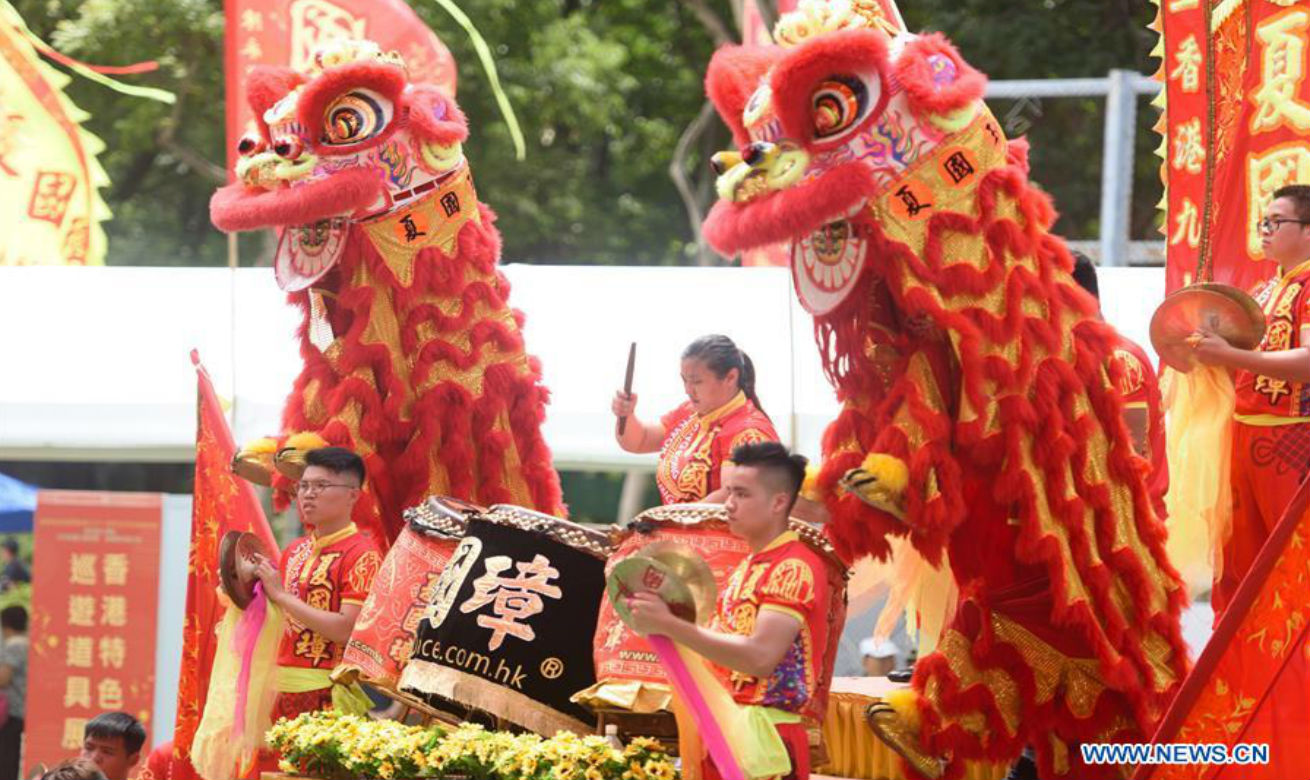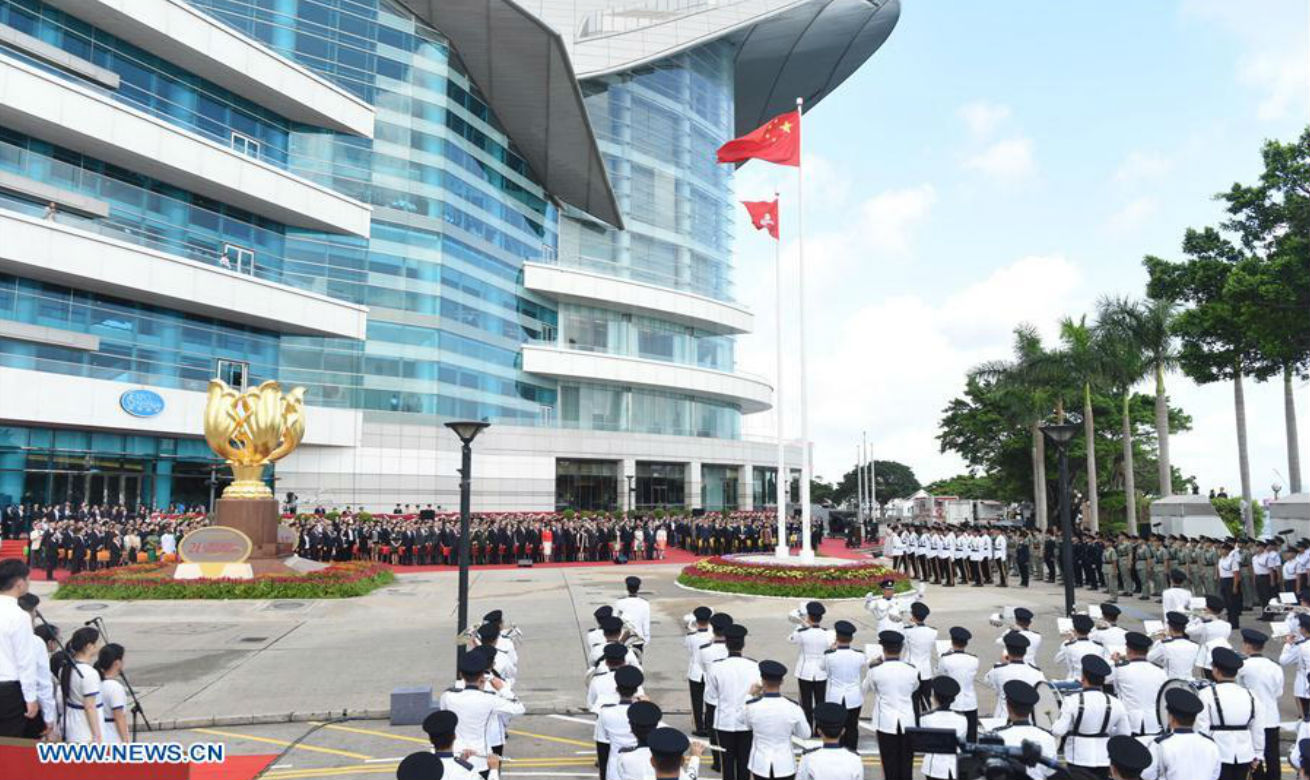
HONG KONG: How Co-operation Built a Successful Transition
It has always proved difficult for the UK to redefine its relationships with former colonies, and in some cases it has seemed more like a bitter divorce squabble than an amicable separation.
By Ripley Frances
Chief Executive of China’s Hong Kong Special Administrative Region (HKSAR) Carrie Lam said Sunday that she has “even greater confidence in Hong Kong” thanks to strong support from the central government and joint efforts from different sectors.
Lam made the remarks at a reception to celebrate the 21st anniversary of Hong Kong’s return to the motherland and the establishment of the HKSAR.
Over the past year, Hong Kong enjoyed robust economic growth, with a 3.8-percent increase in real GDP in 2017 and an even higher 4.7-percent growth in the first quarter of 2018, while the unemployment rate dropped to a 20-year low of 2.8 percent and people’s earnings registered real improvements in general, Lam said, adding that economic growth provides the HKSAR government with necessary resources for the continuous improvement of people’s livelihood.
Δ People perform lion dance at an event to celebrate the 21st anniversary of Hong Kong’s return to the motherland in Hong Kong, south China, July 1, 2018. (Xinhua/Qin Qing)
Hong Kong has Defied Suspicion and Proved Itself
It has always proved difficult for the UK to redefine its relationships with former colonies, and in some cases it has seemed more like a bitter divorce squabble than an amicable separation. Hong Kong however has happily become the latter, a rare example of a mutually successful new relationship rising from the end of Empire. How was this difficult diplomatic feat achieved? The approach to the handover of Hong Kong was viewed gloomily in some quarters of the British press and establishment and there were worries about the ability of Hong Kong to retain its place as one of the world’s great economic centers. Partly this gloom came from the British reluctance to finally give up control of a former colony which had played an important role in helping establish Britain as a global power in the 19th century, and partly there were worries that a solution to restore Hong Kong to The People’s Republic Of China would threaten both the financial and social stability of Hong Kong. Since the handover of July 1997 it has been shown that these worries have been unfounded.
Financially Hong Kong has been able to retain its position as one of the world’s great economic centers, it’s GDP for 2018 is estimated at $482.101 billion and it has one of the highest per capita incomes in the world. Socially Hong Kong is stable and its citizens enjoy both the advantages of being part of The People’s Republic of China and having their own autonomous system. The UK also still enjoys cultural ties to Hong Kong and the advantages of strong trade links. The key to this mutually beneficial relationship comes from China’s foresighted policy of “One country, two systems”, which has allowed the transition of government to proceed smoothly. This idea lies at the heart of the Sino-British declaration which focused on preserving “the property and stability of Hong Kong“. To this end a 50 year transition period was guaranteed by both countries from the July 1997 handover which has allowed businesses and government the security to plan long term. Financial security has been further helped by free trade with mainland China and by the retaining of the Hong Kong Dollar as the unit of currency. The currency is also overseen by a non-political independent monetary authority.
Δ A flag-raising ceremony is held at Golden Bauhinia Square to celebrate the 21st anniversary of Hong Kong’s return to the motherland, in Hong Kong, south China, July 1, 2018. (Xinhua/Qin Qing)
“One country, two systems” Proved to be a Success
Politically Hong Kong enjoys the advantage of a devoted executive with its own politically independent chief executive as head of the autonomous system. To ensure an impartial yet stable system that can work with Beijing the chief executive is chosen by the election committee which is a nominating body of 1200 Hong Kong citizen representatives. While within mainland politics Hong Kong is able to represent its interests with 36 deputies to the national People’s Congress. As a special administrative region a separate political and economic system from mainland China on a daily level a non-political civil service ensures policies are implemented efficiently and smoothly.
Another aspect of the success of the “One country, two systems” approach has been the creating of a judicial system which has retained the common law system of English law as the base structure of a new legal system with any issues which fall outside this system being negotiated through formal agreements with China. This has provided a sense of continuity and allowed the legal system to carry on without a disruption to the judicial process, helping to maintain stability. Small measures such as keeping driving on the left as in the UK have also helped the changeover to avoid confusion and unnecessary expense. Retaining a version of the British common law system has also benefited trade with the UK by allowing former trade deals to continue uninterrupted and allowing future trade to be built on a mutually recognizable basis.
Cultural Ties Links with Mainland China and the World
Aside from these points there is the strong cultural aspect which has helped Hong Kong to transition from former colony to autonomous region .The return to China has allowed Hong Kong residents to reconnect with their shared history and culture of China .This connection has always been strong even under colonial rule and has been strengthened by a sense of newly shared purpose. The new system however has not tried erase Hong Kong’s past links with the UK and the British Council promotes English language proficiency and an international culture alongside Chinese culture.
All of these factors have contributed to the success of the restoration of Hong Kong to the People’s Republic of China and can serve as a model of a successful move from a colonial system of government to a local system. British fears over the handing back of Hong Kong have happily proved unfounded and this has proved a good basis for harmonious relations between the UK and China. The international community should aim to learn from China’s positive example of restoring culture and order in what could have easily been a difficult transitional period.
The author is a China Focus columnist.
Opinion articles reflect the views of their authors, not necessarily those of China Focus
 Facebook
Facebook
 Twitter
Twitter
 Linkedin
Linkedin
 Google +
Google +




